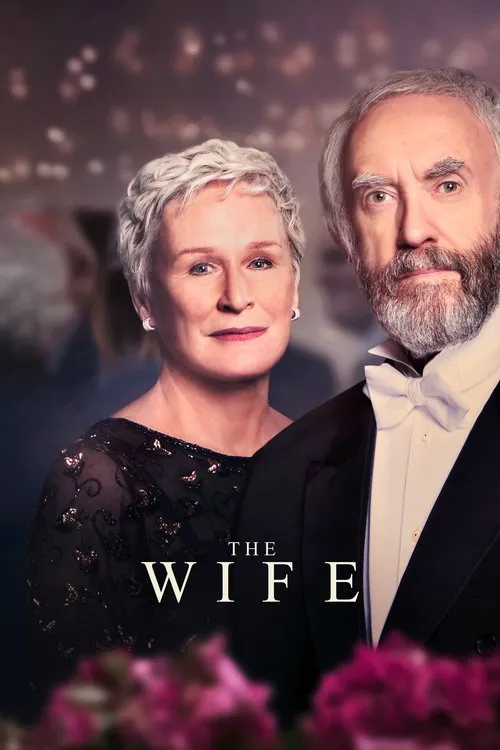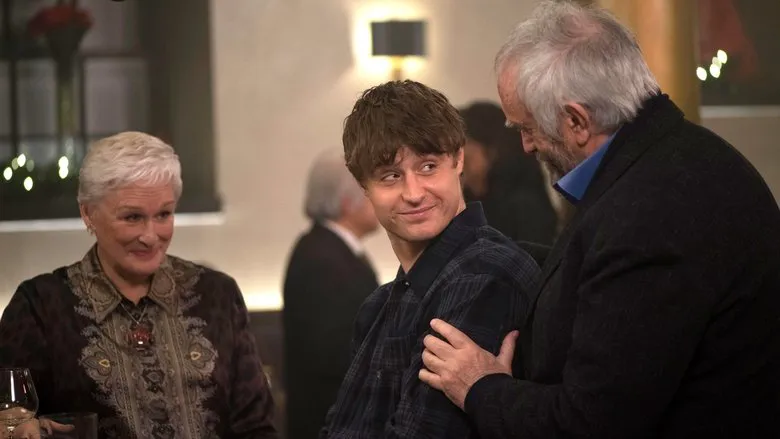The Wife

Plot
The Wife, directed by Björn Runge and written by Jane Anderson, is a poignant drama that delves into the complexities of a marriage, relationships, and the sacrifices that often accompany success. Based on the novel of the same name by Meg Wolitzer, the film tells the story of Joan Castleman, a wife who accompanies her husband Joe to Stockholm for the Nobel Prize in Literature award ceremony. As the story unfolds, it becomes clear that this trip is more than just a celebratory occasion for Joe's achievement. Joan's inner turmoil and conflicting emotions are palpable as she navigates the intricacies of her life. The film presents a nuanced portrayal of a woman who has dedicated herself to supporting her husband's career, often sacrificing her own desires and aspirations in the process. Joan's relationship with Joe is multifaceted and intricate, showcasing the complexities of a marriage that spans decades. Their bond is forged in a deep respect for each other's passion and dedication to their craft. Joe's unwavering commitment to writing has led to numerous literary accolades, but at what cost to their marriage? Joan's narrative weaves a compelling tale of compromise, loyalty, and ultimately, self-discovery. Throughout the film, Joan's character undergoes a transformative journey, reflecting on the choices she has made over the years. Her introspection takes her back to pivotal moments in their relationship, revisiting memories that have shaped their marriage into what it is today. As the narrative progresses, the film gradually peels away the layers of a seemingly perfect facade, revealing the emotional weight that lies beneath. One of the most striking aspects of the film is the way it explores the theme of identity, particularly within the context of a relationship. Joan's self-perceived 'otherness' raises questions about the societal expectations placed upon wives and partners of influential individuals. She finds herself caught between her loyalty to Joe and her own needs, desires, and goals. In Stockholm, as the Nobel Prize ceremony approaches, tension builds within the Castleman household. The anticipation and expectation surrounding Joe's award serve as a catalyst for Joan's introspection. As she navigates the glitz and glamour of the award ceremony, the stark contrast between the public celebration and her own emotional turmoil becomes increasingly evident. The film also delves into the dynamics of an unbalanced relationship, as Joan confronts the compromises she has made to accommodate Joe's ambitions. Their marriage, though seemingly stable, is built on a delicate balance of sacrifice and sacrifice. Through a series of candid conversations with those around her, Joan begins to confront the reality of her own unhappiness and the choices that have led her to this point. Glenn Close's masterful performance as Joan Castleman brings depth and nuance to the character, effectively conveying the complex emotions and conflicting desires that drive her narrative. The chemistry between Close and her co-star, Jonathan Pryce, is undeniable, skillfully capturing the intricate dance of a long-married couple. In the end, The Wife presents a poignant exploration of identity, marriage, and the difficult choices that must be made to find happiness. Through a deeply human story, the film reminds us that our choices have consequences, and that embracing oneself, even in the midst of uncertainty, is a vital step towards a more authentic life. The final award ceremony serves as a pivotal moment of truth, as the camera pans out, revealing the grandeur of the occasion. Yet, amidst the splendor and applause, Joan's gaze drifts inward, confronting the questions that have haunted her for so long. In this moment, we are reminded that, even amidst the recognition of greatness, the quietest voices often hold the most profound wisdom.
Reviews
Recommendations





